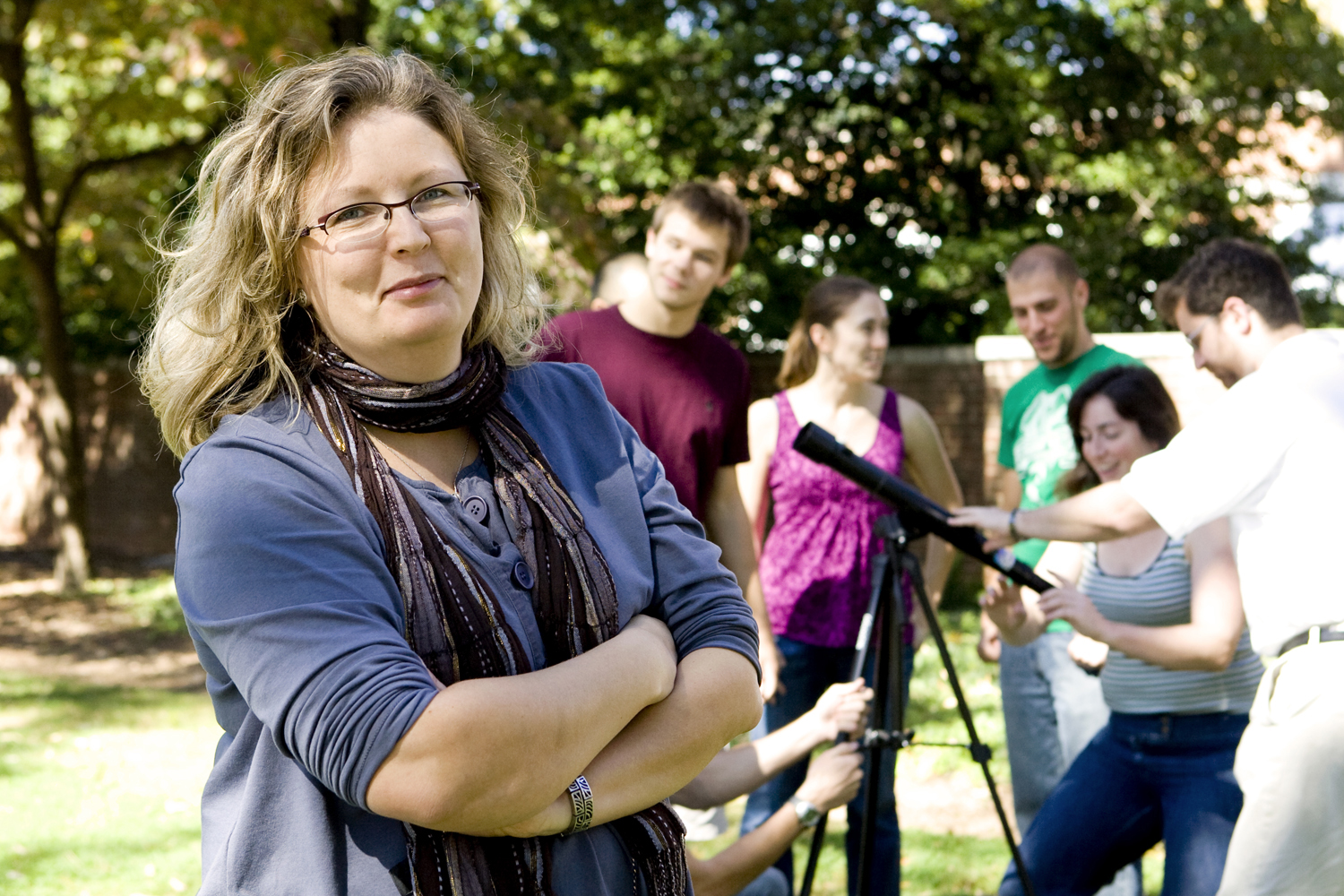October 14, 2009 — University of Virginia astronomy professor Kelsey Johnson has launched an astronomy club this fall.
Named "Dark Skies, Bright Kids," the club is an after-school program, based at Red Hill Elementary School, designed to expose rural elementary school students to the science behind Albemarle County's unpolluted and clear dark nighttime skies, which Johnson called an "amazing natural resource."
The club is open to third- through fifth-graders at Red Hill, with weekly club meetings taking place Friday afternoons. Additionally, family-oriented telescope observing takes place Friday evenings with portable telescopes set up on the grounds of the rural southern Albemarle elementary school.
Although the club is still in its infancy, it has already held several activities.
Johnson hosted "Astronomy Week" at Red Hill to publicize the new club. Throughout the week of Sept. 21, Jeffrey Bennett, a children's book author and researcher in the Department of Astrophysical and Planetary Sciences at the University of Colorado, led four different assemblies at Red Hill and Scottsville elementary schools. Each focused on his picture book series, "Science Adventures with Max the Dog."
(Bennett also gave a public lecture on Sept. 21 for University students in Clark Hall. The lecture, titled "Beyond UFOs," focused on the search for extraterrestrial life.)
Rain postponed the club's kick-off event until Saturday (weather permitting). Elementary school students and their families will gather at Red Hill for a "Dinner Under the Stars." A potluck meal will begin around 6 p.m., with telescope observing beginning shortly after sunset.
Johnson's National Science Foundation grant funded the purchase of portable telescopes and related equipment, and undergraduate and graduate University students volunteer their time to work with the club.
"We are really trying to bring astronomy and science home to the kids any way we can," said volunteer Ian Czekala, a fourth-year astrophysics and aerospace engineering major. "We want kids to be turned on to a lifetime of learning, and I think that active learning – be it through clubs, field trips or projects – is one of the best ways to do this at an early age."
One of Johnson's motives in implementing the club at Red Hill was the rural school's high percentage of low-income families. She noted that 50 percent of elementary school students in southern Albemarle County qualify for free or reduced lunch, an indicator of the area's socioeconomic status. According to Johnson, the grant-backed club will boost the "science education of the 'rural poor.'"
The schools especially appreciate the volunteers the club brings in, Johnson said.
"Rural schools have a smaller number of volunteers, due to a variety of factors," she said. "The schools are harder to get to, but also the general understanding is that volunteer forces at most elementary schools come from nonworking parents, or parents who can afford to take time off of work. As a result of the socioeconomic demographic of these rural schools, where most students live near or below the poverty line, their parents do not have the luxury of taking time off of work and coming in to volunteer. "
Rachael Beaton, a volunteer and third-year graduate astronomy student, said that while the socioeconomic status of the students should not affect their formal education, "the reduced level of community giving can have the effect of limiting the potential for outreach activities at the school."
Johnson said she hopes increased interest and volunteerism will allow the program to expand and include more grade levels at Red Hill, and ultimately to expand to other schools.
Any University student can volunteer with the club, Johnson said. "There's a desperate need for science outreach in the broader community. Every little tiny bit of effort is being completely soaked up."
Media Contact
Article Information
October 14, 2009
/content/astronomy-professor-pilots-new-club-rural-elementary-children

